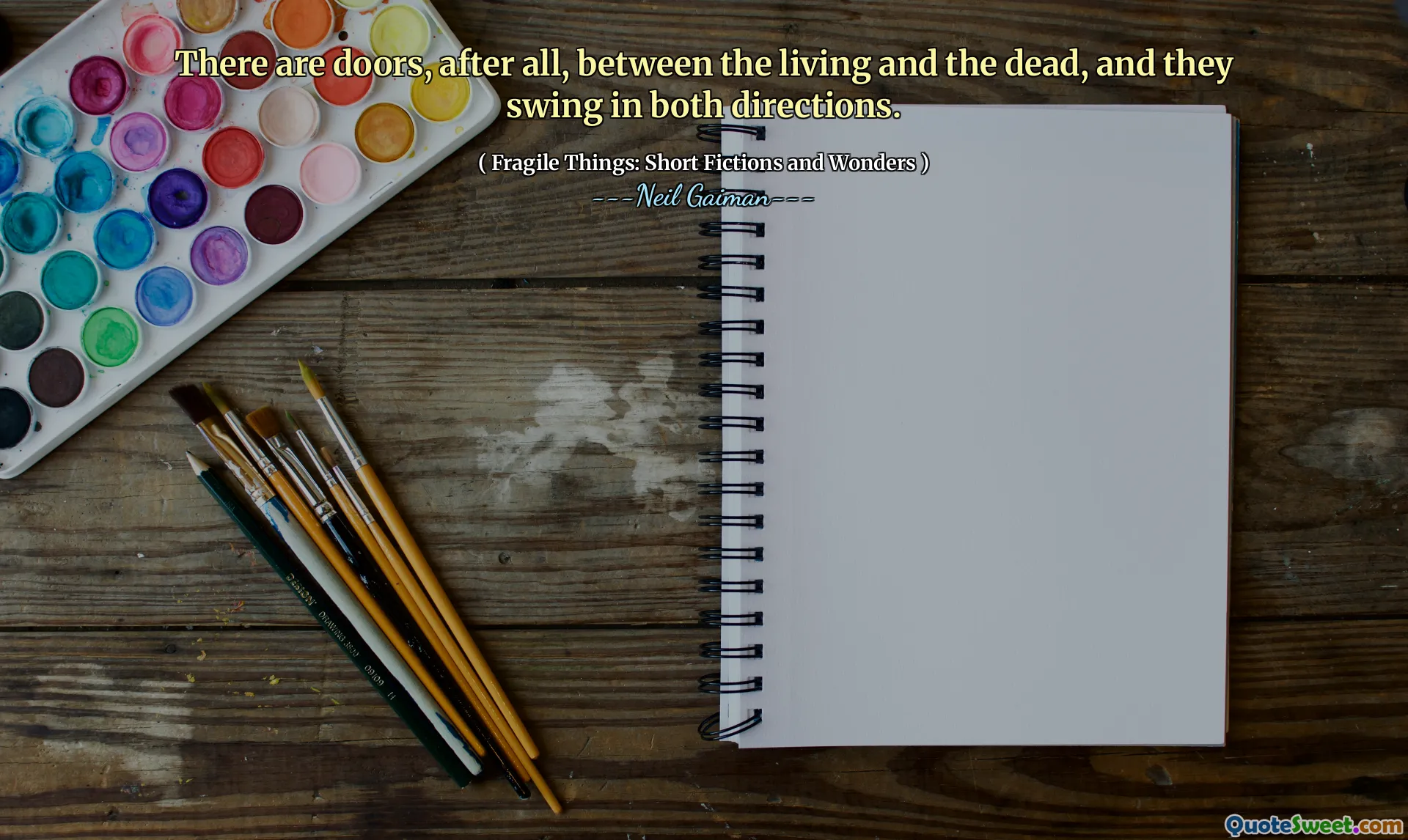
There are doors, after all, between the living and the dead, and they swing in both directions.
This quote from Neil Gaiman's "Fragile Things: Short Fictions and Wonders" eloquently captures the porous boundary between life and death, suggesting a fluidity that challenges the finality we often associate with mortality. The metaphor of doors swinging both ways speaks to the idea that the living and the dead are perpetually connected, influencing and interacting with each other in unseen ways. It provokes consideration of themes such as memory, legacy, and spiritual presence—the ways in which those who have passed continue to impact the living. The image of doors, rather than walls or barriers, emphasizes choice, transition, and movement, implying that the separation is not absolute but conditional and traversable. This can be interpreted psychologically, as in how memories and grief keep the dead 'alive' within us, or metaphysically, considering beliefs in the afterlife or spiritual communication.
Reflecting on this quote invites a meditation on mortality with less fear and more openness. It can bring comfort by suggesting that death is not a one-way journey but part of an ongoing cycle or dialogue. Additionally, it encourages empathy and understanding toward both the living and the dead, uniting them through a shared passage. The notion that doors swing both ways also subtly hints at the possibility of returning, be it through influence, remembrance, or even supernatural means. In essence, Gaiman encapsulates a complex, nuanced perspective on death that resonates deeply on emotional and philosophical levels, providing a poetic bridge between two often-separated realms.








